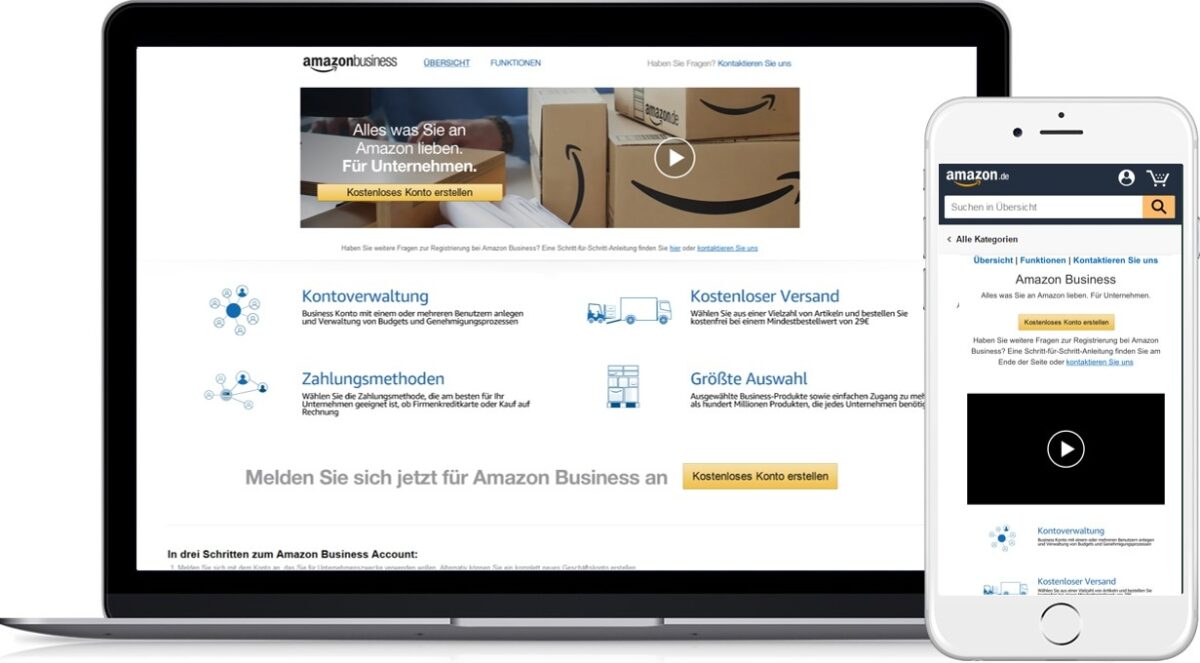
Amazon Business comes to Germany
Amazon's basic idea is absolute customer focus - Amazon has always been committed to providing the best service to its customers from the very beginning. Now this idea is being extended to the digital B2B market. Here too, the motto is that the customer's interests are always at the centre of attention. Although general common ground between Amazon B2B customers and Amazon B2C customers is held, in that they share similar service and usage requirements, these customers differed considerably in their respective needs in the past. Today the successful concept for private customers is being transferred to business customers.


